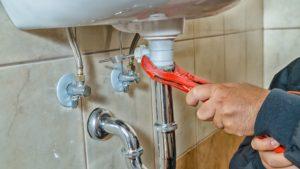What do You Call a Plumber?
A “Sanitary engineer” was the common term for plumbing in the city’s early days.
But as time passed and the population grew, the need for different trades increased. So, “sanitary engineer” gradually gave way to “plumber.” And that’s how we got our name!
Suppose you live in San Diego. Is hiring a plumber worth it in San Diego?
We may not be engineers anymore, but we’re still proud to be part of a long and honorable tradition. Thanks for keeping us in mind when you need plumbing services!

“plumber” comes from the Latin word for lead, which was used to make pipes in early plumbing systems.
Unsurprisingly, the word ‘plumber‘ is Latin; our modern plumbing systems can trace theirs back to Ancient Rome.
The Romans understood how important it was to have a reliable water supply and the importance of regulating sewage using lead pipes.
Although there have been various advances since those early days, from materials to methods, it’s still vital to have skilled people maintain this part of our infrastructure.
Plumbers are thus continuing an ancient tradition and earning their name due to their expertise with lead, one of the foundational elements in modern-day plumbing systems.
In medieval England, plumbers were known as “pewterers” because they worked with lead pewter.
In medieval England, the profession of a plumber was known as “pewterers” owing to their specialization in using lead pewter for plumbing-related activities.
During those times, lead pewter was widely used in spouts, faucets, gutters, and even cisterns.
Pewterers also forged these lead pieces into shapes like pans and deacons using a technique called ‘raising.’
This craftsmanship required great skill, attention, and thoroughness from pewterers, making it a rather sought-after.
The intricacy and beauty of these pieces indicate the hard work that went into creating them, allowing us to marvel at the skills of pewterers even today.